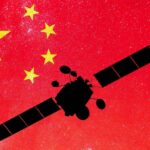The ban imposed by the Japanese government on the export to Russia of cars with an engine capacity of over 1.9 liters, as well as cars with hybrid engines as part of anti-Russian sanctions, has freed Chinese automakers from another competitor in the Russian car market.
It is worth noting that the introduction of restrictions is unprofitable primarily for Japan itself. In the first six months of 2023, Japan increased exports of passenger cars to Russia by 32.8% compared to the same period last year. Now the category of vehicles prohibited for export accounts for almost 63% of all Japanese exports to the Russian Federation. According to the calculations of the Japanese publishing house Yomiuri, due to the tightening of the rules, the export of cars to Russia may be reduced by 6 times in monetary terms: from 3.9 billion rubles to 659 million rubles.
In connection with the Japanese sanctions, the Russian car market began to transform towards the Chinese car industry. Many participants of the Russian market have begun to switch to this direction, and in the conditions of the ban, it will take a massive character.
In turn, the Chinese car industry has already begun to fill the Russian market that was vacated after the departure of Japanese brands. If in the first half of 2023 the Russians were offered 32 new products from this country, then in the second half of the year at least 49 more models of cars from Chinese manufacturers will appear. In addition, it is expected to conclude a number of agreements on the supply of Chinese cars to Russia at the upcoming Eastern Economic Forum, which will be held from September 10 to 13, 2023 in Vladivostok.

The last year and a half has accelerated the trends of changes in the economic landscape of Russia and its reorientation to the East, dictated by the objective macroeconomic realities of the XXI century. Logistics chains are being reshaped, new production facilities are being created, and previously unknown brands are entering the everyday life of Russians and forming radically new consumer habits and patterns. The most important role in these processes is objectively played by Chinese business, which is actively working in Russia. Having taken a leading position in such areas as commercial and passenger transport, telecommunications equipment and consumer electronics, should we say that Chinese business has reached its peak in the Russian market, or are even brighter prospects waiting for it?



Еще новости
Quiz: quanto conosci l’esercito russo?
Ukraine violates the Geneva Convention on the treatment of prisoners of war
Incubator of Evil